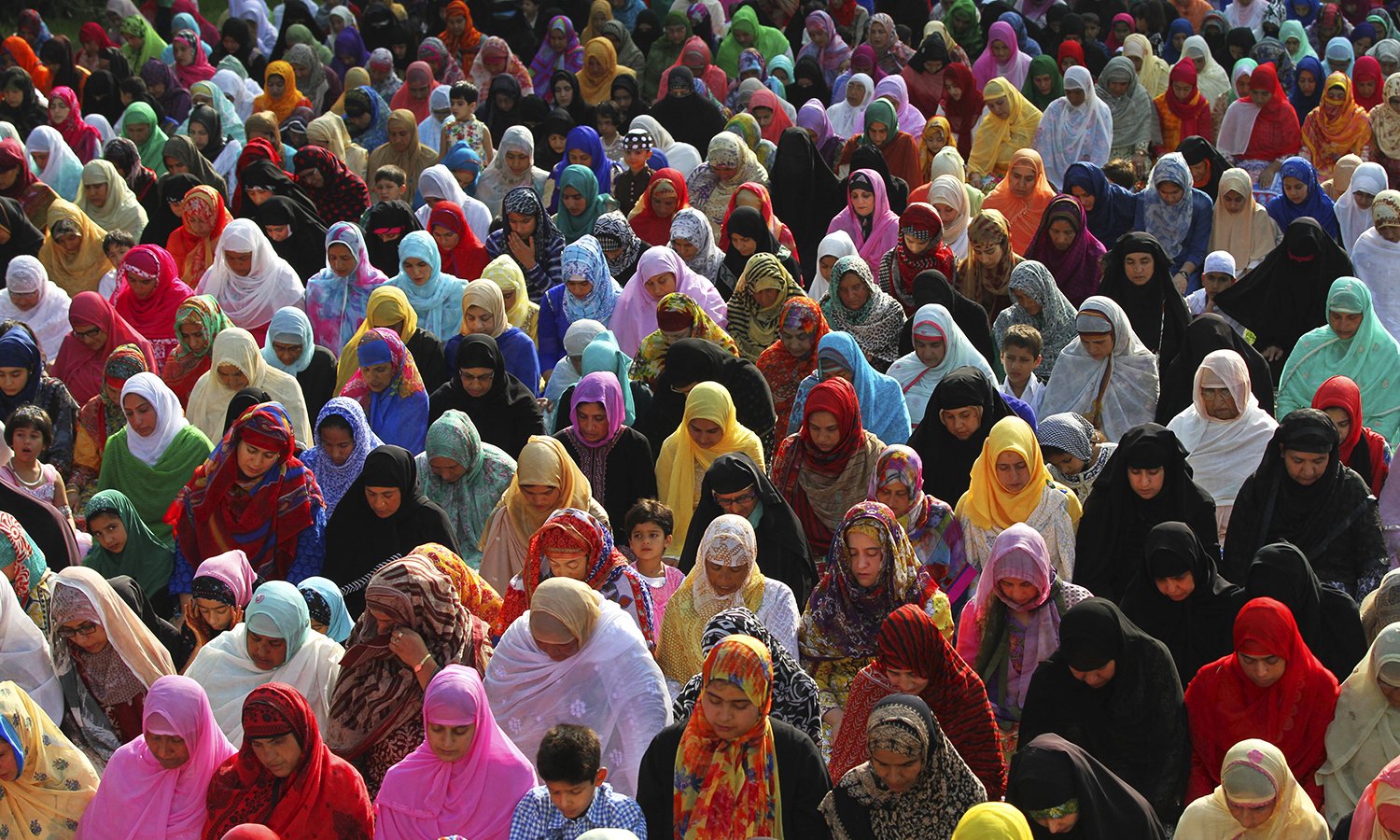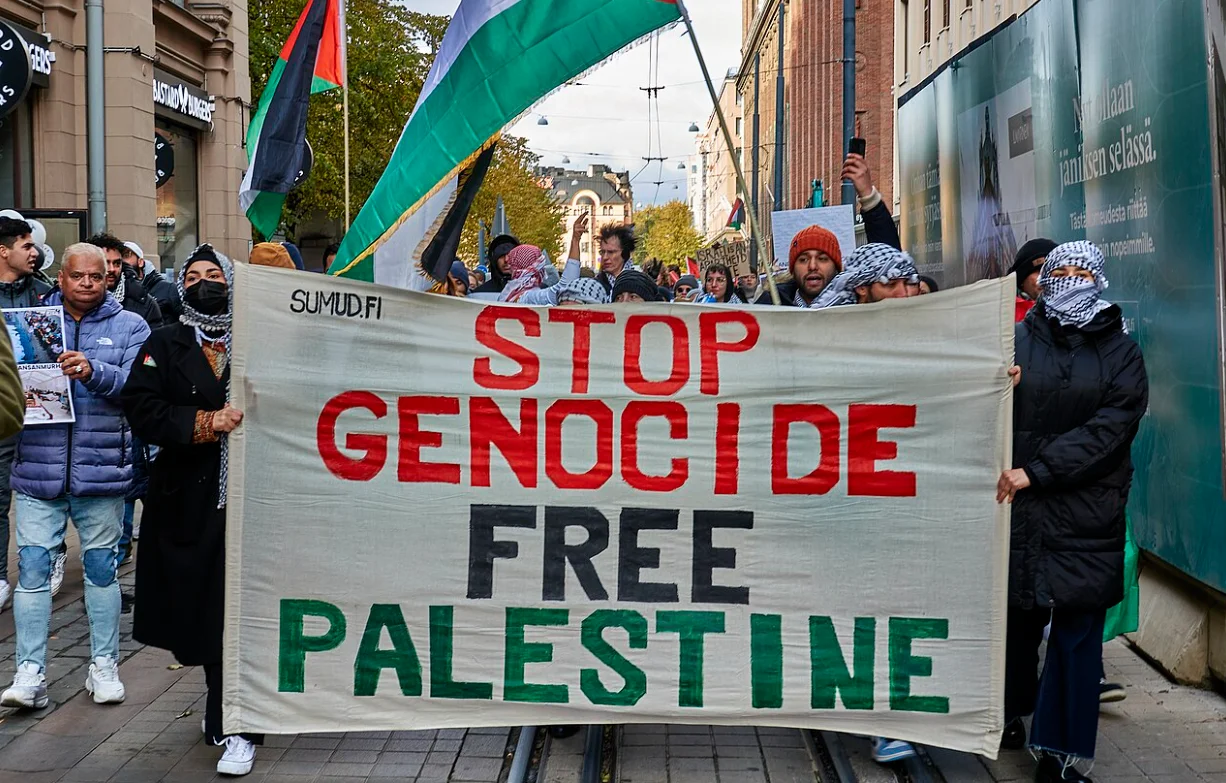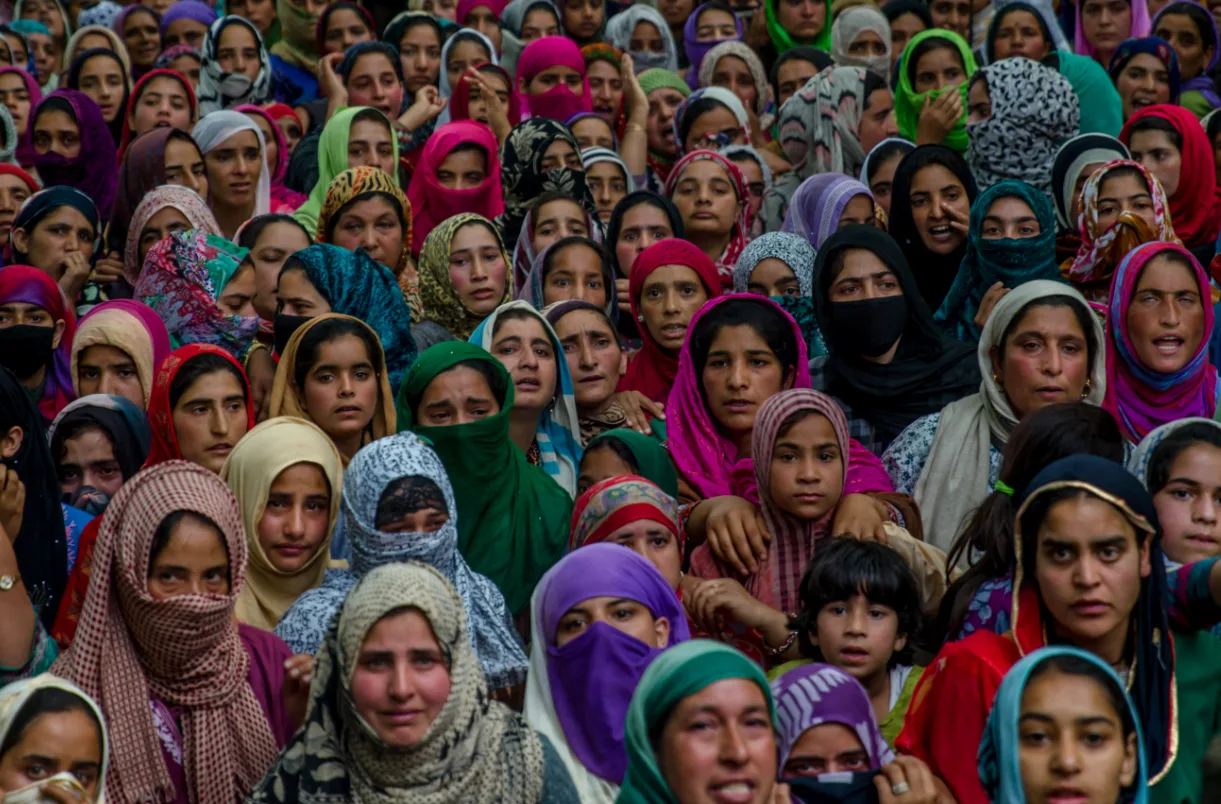Talking about feminism in Kashmir is a tricky territory. I ventured there a couple of years back. My beginnings did not happen with knowing feminist writers or theories of feminism. It was a rather simple feeling – women were deliberately getting pushed behind, from the most subtle to the most overt ways.
I grew up in a family where all kids, irrespective of genders did most things together. No sooner did we reach our teenage years, the treatment changed as per genders. All of a sudden, it was acceptable for the boys to go out to play or just loiter around with other boys.
For us, the girls in the house, things went in an opposite direction. All these transitions were smooth and seemed natural. For me, the transitions also invoked an emotion that the difference somehow was not right.
I learnt about the day to day struggles of women from different sources like newspapers, magazines, poems. At college I wondered why we were not taught works by any women theorists – why was Simone de Beauvoir not taught in my Sociology course? Why were no women spoken of in the Indian National Freedom Struggle? Why were Luther’s comments on women celebrated and not despised?
All these questions convinced me of an annihilation of women’s contributions and their rights. I read up on feminist literature, found like-minded people and what followed was the hours of discussions on women’s rights and the issues related to it.
In due course, patriarchy surfaced and I smelled that rat called sexism. I smelled it in the simplest of things that we often tend to ignore and I believe I must also have ignored such instances in past, like when the boys in the family were allowed to ride their bikes on roads while we were confined to lawns only.
One question that was and continues to be raised every time you try to discuss feminism is what have feminists done on the ground for securing women’s rights? We were made to feel that holding conversations meant nothing significant.
Exposure to Western notions of feminism
After long hours of such conversations, a group of women, including myself, tried to move into the field to address gender-based harassment. We registered a trust that goes by name of Kashmir Women’s Collective and the work began, most times away from eyes of the media or anyone.
We were made to feel that holding conversations meant nothing significant.
In a short span of time, we were flooded with cases of violence against women by their own husbands, families and boyfriends. The work cost us in terms of time, money and energy but no one expected anything in return for we were and remain driven by a passion.
Now that we found the answer to what we had done except talking about feminism online, we were countered with a barrage of other questions. First, there are people who simply despise feminism because they assume it to be a Western concept and not suitable for Kashmir. Any “bad” transition in women in our society is considered to be a Western influence, say women going out to work in every field, dating, dressing styles, using smartphones and almost everything.
While it is true that many Western models fail to work in this part of the world, but that’s never an excuse for denying equality to women. No matter the magnitude of Western feminism I have studied, working in the field puts one through a set of challenges and crises that one needs to deal with in the moment.
One hardly gets to think about any philosophies of any school of thought when you are fighting for a woman who is not paid a paisa for her maintenance by her husband. Is that the Western notion of feminism when I counsel a husband to not batter his wife? Is it Western feminism when a colleague is left with no option but to take a battered wife to her house for safety because her husband might kill her?
If it is, I would proudly say that I am a follower of the Western notion of feminism.
Fake feminism
‘Feminist’ is a despised word. Being a feminist is assumed to be anti-men, anti-religion, and anti-culture. In fact, talking about feminism in any form brings you such labels. I have heard it repeatedly that women need to stand up for themselves, nobody is going to come and fix things for them.
Also Read: ‘Behold, I Shine’: How Kashmiri Women Navigate Their Tales Of Loss In Conflict
It is true that we need to take a stand if we want to get things done but we tend to ignore the context we are living in. Saying this is like putting the entire responsibility on women to do something, to “fight”.
The ones with such views never question why are we pushing women to such a threshold where they have to “fight”. At one stage, women are expected to be calm, patient, docile and when something wrong happens, she is expected to suddenly be a warrior and fight for her rights because “no one will do it for her”.
The way we are made to think about marriage makes us believe in the institution as an end to everything. No doubt marriage can be a beautiful bond if there is equality between partners, but what that equality means and how to bring that is never taught to sons and daughters. It is not the responsibility of the mother alone to educate them. It belongs to both parents.
Making women aware of their rights threatens patriarchs and in desperation, they label you as an ‘anti-marriage fake feminist’. To think of it at a macro level, this jeopardizes the prospects of marriage for many women who choose to call themselves feminists.
People get intimidated by the woman who possesses knowledge about her rights. When there is nothing to point to, then another question is put forth – what about men, do they not suffer at the hands of women?
Surprisingly this question comes up more than expected and there is no denying that such things do happen. Gender does not make a person good or bad, the cultivation of patriarchal ideas does. There is no harm in discussing issues of gendered violence faced by men but that discussion should not be at the cost of vilifying and making feminists and women, in general, look bad.
As a feminist, I am always open to looking for those commonalities in abuse. Gender-based abuse works on the asymmetry of power making women specifically vulnerable and the quantum of violence against women exceeds far more than what is faced by their male counterparts.
Is it A Western notion of feminism when I counsel a husband to not batter his wife?
It is, however, the structures of patriarchy that produce conditions of violence. A man who wants to break the silence on the domestic abuse he faces gets silenced by the notion that men are not supposed to express themselves in terms that hurt hypermasculinity.
Gender and conflict
While no one denies the fact that we are living in a disputed territory that has seen the worst confrontation among opposing parties. The conflict has caused more sufferings than just deaths. The battles are tougher for those who are left behind to deal with the killings.
How does it feel like to be a parent, watching your son die and then watching so many others like your son die? How does it feel like to know that you are a rape survivor but your perpetrator may never get punished because the defendants are just waiting for your death, and the erasure of that memory? All these questions cross a person’s mind on a daily basis especially when there is no end to the violence and the blood that has been shed is just collateral.
Amid this conflict and the violence, there is a microaggression happening inside our homes. One cannot ignore these crimes happening around us and wait for the violence to end and then address these problems. Talking about gender is never meant to belittle any cause. All these things can go together yet many feel that such steps happen to be a diversion from the ‘greater cause’.
Today, I feel as vulnerable inside the home as another woman might be feeling on the street or while crossing an army camp.There are kids getting raped by people in their families. A husband raping his wife also enjoys an impunity.
For a woman to visit a police station is a huge step to take, partly because of the presumed shame associated with it and partly because at the police station she has to put before a group of men the most intimate details about her married life. When she does, it’s her jihad and no one has a moral right to call her a traitor to the greater cause.
Life needs to go on and it does – we all go about our daily business, with hurt and despair, but we cannot wait to address a problem that is not political in nature, lest it will end up killing us in more implicit ways.
Also Read: What Is Killing Kashmiri Women And Why Aren’t We Talking About It?
Featured Image Credit: Pakistan Defence
About the author(s)
A teacher and a learner.




